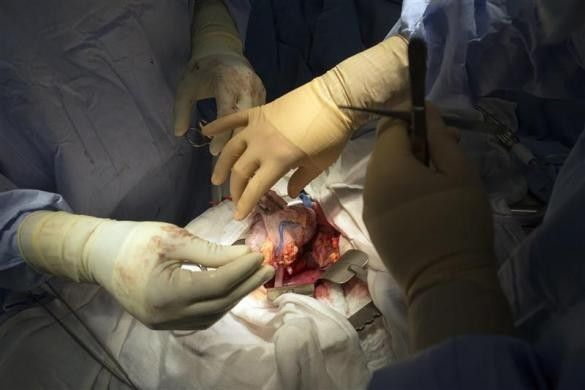Illinois Man Who Dies Of Stroke Is Kidney Donor For Own Mother

Normally, people on the kidney donation list would be happy to know when a kidney becomes available, especially if it was a match because the donor was a kin. However, in the case of Rose Perry from Illinois, the kidney donor turned out to be her 24-year-old son, Ronald Perry Jr, who suddenly died due to stroke.
Despite emerging from a successful kidney transplant procedure, Perry said that pain from her son’s demise “hurts so bad.” The son suffered fatal cardiac arrhythmia and slipped into coma after his stroke, reports ABC.
Rose was suffering from type 2 diabetes which has kidney failure as one of its complications. After the diagnosis of kidney failure, she was hospitalised in early May and enlisted in the transplant waiting list.
When she was initially informed that doctors would need to cut Perry to harvest his kidney for her, Rose resisted the idea. She explains, “I wanted my son. I didn’t want his kidney,” Tribune quotes Rose. However, her husband and youngest son convinced Rose to agree to the procedure.
Had Ronald not died unexpectedly, it would have taken Rose up to five years of waiting for an organ. But after she agreed to accept her son’s kidney, testing was done, and when the doctors found it was a match, within two days, she was approved for the transplant procedure at the Advocate Christ Medical Center.
Dr Deepak Mital, the surgeon, said that the procedure, which took place after Ronald’s death, was definitely a “gift of life” from son to mother who gave life to him 24 years ago. However, for Rose, the experience was “bizarre” that she could not remember being taken to surgery. All she felt was numbness over the unexpected death of Ronald.
Three days after the surgery, Rose left the hospital in time to attend Ronald’s burial on May 22. Besides, Rose, two other patients benefitted from Ronald’s two organs that were also harvested from his corpse – his liver and other kidney. Rose balked at giving away her son’s heart.
In the case of living kidney donation, only one kidney could be donated because the donor still needs a kidney. Organ recipients from living kidney donors have significantly better chances of survival, particularly if the organ comes from a close relative and matches, according to Organdonation.nhs.uk.
Because the transplant procedure could be planned at a time convenient to the living donor and the recipient, the surgery could even avert the recipient from undergoing dialysis. Such types of organ recipients have better chances of long-term transplant survival.
To contact the writer, email: vittoriohernandez@yahoo.com





















